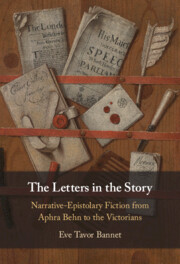
- Cited by 3
-
Cited byCrossref Citations
This Book has been cited by the following publications. This list is generated based on data provided by Crossref.
Garza, Ana Alicia Snailham, Fiona Blackburn-Daniels, Sally Zarif, Mariam and Baker, William 2024. XIIIThe Victorian Period. The Year's Work in English Studies, Vol. 102, Issue. 1, p. 820.
Davis, Amanda Blake Thompson, Will Talbott, Tyler Fancett, Anna Coughlin, Thomas Greentree, Shane and Khan, Yasser Shams 2024. XIILiterature 1780–1830: The Romantic Period. The Year's Work in English Studies, Vol. 102, Issue. 1, p. 714.
Turner, Joseph Milne, Fiona Carver, Dylan and Bender, Ashley 2024. XIThe Eighteenth Century. The Year's Work in English Studies, Vol. 102, Issue. 1, p. 646.
- Publisher:
- Cambridge University Press
- Online publication date:
- November 2021
- Print publication year:
- 2021
- Online ISBN:
- 9781009003698




